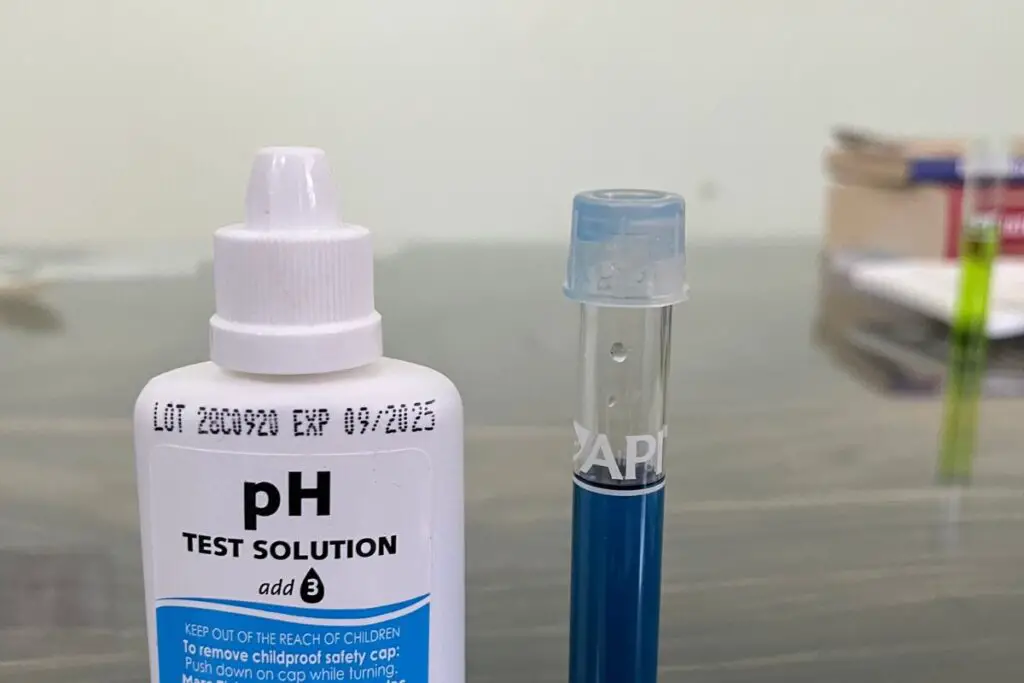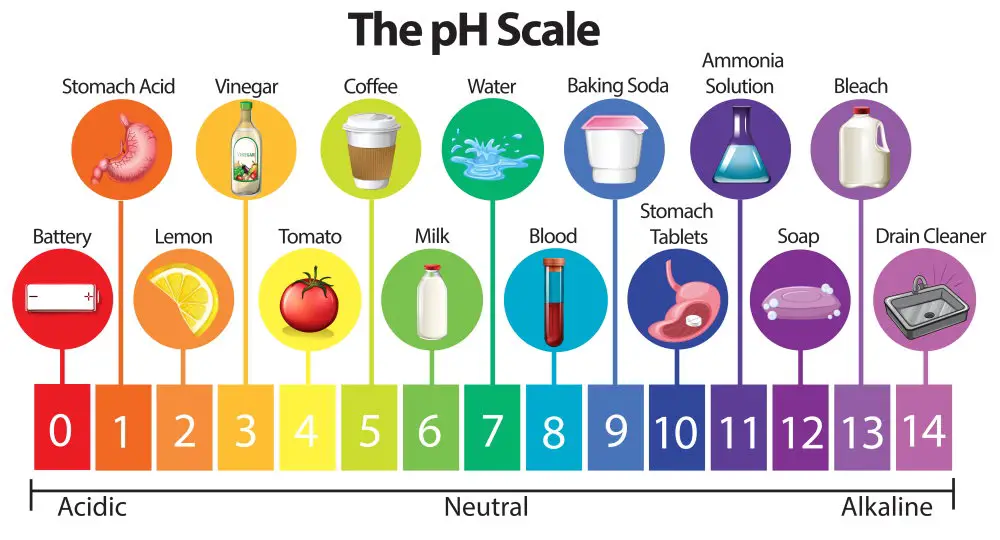Are you a proud owner of a beautiful Betta fish? Do you want to ensure that your fish stays healthy and happy? One of the most important factors for maintaining the health of your Betta fish is to monitor the pH level of the water in its tank. In this article, we will guide you through the process of maintaining an ideal water pH level for your Betta fish.
Betta fish are known for their vibrant colors and active personalities. However, keeping them healthy requires more than just feeding them and cleaning their tank. The pH level of the water in their tank plays a crucial role in their overall health and well-being. In this article, we will share with you some tips and tricks on how to maintain an ideal water pH level for your Betta fish, so you can enjoy their beauty and company for years to come.

Maintaining the Ideal Water pH Level for Your Betta Fish
Betta fish are known for their stunning colors and long, flowing fins. These beautiful creatures are also easy to care for, making them popular pets for both novice and experienced fish enthusiasts alike. One of the most important aspects of betta fish care is maintaining the ideal water pH level. In this article, we will explore the optimal pH range for betta fish and provide tips on how to maintain it.
Understanding the Ideal pH Range for Betta Fish
The pH level of water is a measure of its acidity or alkalinity. A pH of 7 is considered neutral, while pH values below 7 are acidic and pH values above 7 are alkaline. Betta fish are freshwater fish that thrive in a slightly acidic environment with a pH range of 6.5 to 7.5. Outside of this range, betta fish may experience stress, illness, and even death.
It’s important to note that different species of fish have different ideal pH ranges. While betta fish prefer slightly acidic water, other fish may require a more alkaline or neutral environment. Before introducing any new fish to your aquarium, it’s essential to research their specific pH requirements to ensure they can coexist with your betta fish.
Factors Affecting Water pH Level
Several factors can affect the pH level of your aquarium water, including:
- Tap water – Depending on your location, tap water may have a high or low pH level. It’s essential to test your tap water’s pH level before using it in your aquarium.
- Decorations – Some aquarium decorations, such as rocks and driftwood, can alter the pH level of your water.
- Waste – Fish waste and uneaten food can create ammonia, which can increase the water’s acidity and lower the pH level.
- Plants – Live plants can help regulate the water’s pH level by absorbing excess carbon dioxide and releasing oxygen.
Regular water changes and proper aquarium maintenance can help keep the pH level within the ideal range for your betta fish.
Maintaining the Ideal pH Level
Here are some tips for maintaining the ideal pH level for your betta fish:
- Test the water regularly – Use a pH test kit to monitor the pH level of your aquarium water and make adjustments as needed.
- Acclimate new fish – If you’re introducing new fish to your aquarium, gradually acclimate them to the water’s pH level to prevent shock.
- Use pH adjusters – If your water’s pH level is too high or too low, you can use pH adjusters to bring it within the ideal range for your betta fish.
- Provide adequate filtration – A good filtration system can help maintain a stable pH level by removing waste and excess food from the water.
- Avoid overfeeding – Overfeeding your fish can lead to excess waste and ammonia, which can lower the water’s pH level.
The Benefits of Maintaining the Ideal pH Level
Maintaining the ideal pH level for your betta fish is essential for their health and longevity. When the water pH level is within the optimal range, betta fish can:
- Develop and maintain their vibrant colors
- Grow and thrive
- Have a stronger immune system, making them less susceptible to illness
pH Level vs. Water Hardness
Water hardness is another important factor to consider when maintaining your aquarium’s water quality. Water hardness refers to the amount of dissolved minerals, such as calcium and magnesium, in the water. While water hardness doesn’t directly affect the pH level, it can impact the water’s buffering capacity, which is its ability to resist changes in pH level. It’s essential to maintain both the optimal pH level and water hardness for your betta fish’s health and well-being.
In conclusion, maintaining the ideal water pH level is crucial for the health and longevity of your betta fish. Regular water testing, proper aquarium maintenance, and providing a suitable environment can help ensure your fish thrive and live long, healthy lives.
Frequently Asked Questions
In this section, we will answer some of the most commonly asked questions about maintaining the ideal water pH level for your betta fish.
What is the ideal pH level for betta fish?
The ideal pH level for betta fish is between 6.5 and 7.5. It is important to keep the pH level within this range as it can affect the health and well-being of your fish. If the pH level is too low or too high, it can cause stress, illness, and even death. To maintain the pH level, you can use a pH test kit to check the water regularly.
If the pH level is too low, you can add a pH buffer solution to increase the pH level. If the pH level is too high, you can add a pH reducing solution to lower the pH level. It is important to follow the instructions carefully and not to add too much solution at once, as it can cause a sudden change in the pH level and harm your fish.
What causes pH level fluctuations in betta fish tanks?
Several factors can cause pH level fluctuations in betta fish tanks. One of the most common causes is the buildup of waste and debris in the tank. This can lead to a decrease in pH level, as the waste and debris produce acidic compounds that lower the pH level.
Another factor that can cause pH level fluctuations is the use of tap water. Tap water can contain high levels of minerals and chemicals that can affect the pH level of the water. To avoid this, it is recommended to use a water conditioner that can neutralize the minerals and chemicals in the tap water.
How often should I test the pH level in my betta fish tank?
You should test the pH level in your betta fish tank at least once a week. This will help you to monitor the pH level and make any necessary adjustments to keep it within the ideal range. If you notice any sudden changes in the behavior of your fish or the appearance of the water, you should test the pH level immediately.
It is also important to note that the pH level can fluctuate throughout the day, so it is recommended to test the pH level at the same time every day to get an accurate reading.
Can I use baking soda to adjust the pH level in my betta fish tank?
Yes, you can use baking soda to adjust the pH level in your betta fish tank. Baking soda is a natural pH buffer that can help to increase the pH level of the water. To use baking soda, you should dissolve a small amount in a cup of water and then add it to the tank slowly. It is important to add the baking soda gradually and test the pH level regularly to avoid sudden changes that can harm your fish.
However, it is important to note that baking soda can only increase the pH level and not decrease it. If the pH level is too high, you should use a pH reducing solution instead.
What are the consequences of having an incorrect pH level in my betta fish tank?
Harmful consequences can occur if the pH level in your betta fish tank is incorrect. If the pH level is too low or too high, it can cause stress, illness, and even death in your fish. A low pH level can also lead to the buildup of toxic ammonia and nitrite in the water, which can further harm your fish.
It is important to monitor the pH level regularly and make any necessary adjustments to keep it within the ideal range. This will help to ensure the health and well-being of your betta fish.

Ideal pH Level For Betta Fish – The ULTIMATE pH Guide For Bettas – How To Raise/Lower pH & More!
In conclusion, it is essential to maintain the ideal water pH level for your Betta fish. This ensures that they remain healthy and happy. Remember that a pH level that is too high or low can cause stress, illness, and even death. Hence, monitoring and regulating the pH level should be part of your regular fish care routine.
To maintain the ideal pH level, you should conduct frequent water tests and make adjustments accordingly. This involves adding pH buffers or changing the water altogether. It’s also vital to ensure that the tank is clean and that your fish are fed a balanced diet.
In summary, taking care of your Betta fish is not just about providing a tank and food. It also requires attention to detail, such as maintaining the ideal water pH level. By doing so, you can ensure that your fish live a long, healthy, and happy life.
